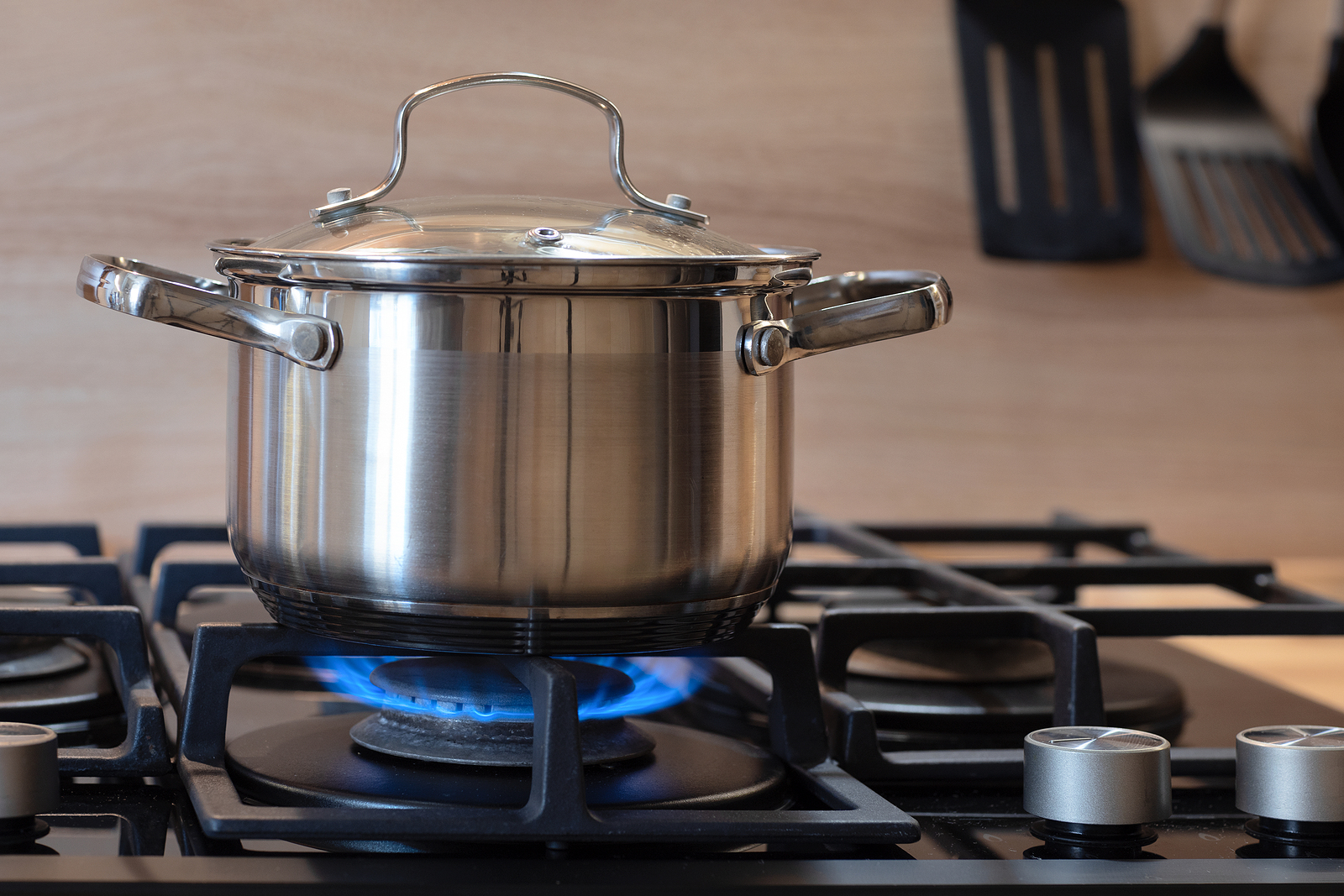When a homeowner needs a new stove (or range, whichever you choose to call it), you typically buy a replacement that fits the fuel source of the old appliance. In other words, you’ll replace a gas stove with another gas stove or an electric one with an electric stove.
It’s easier and less expensive this way, right?
If you’ll be starting a kitchen from scratch or if you don’t mind the expense of swapping out gas for electric (or vice versa), you’ll need to make a decision of gas vs. electric stoves.
As usual, I’m here to help.
Here’s What You Need to Know About Gas Ranges
Currently, 35% of Americans cook with gas in their homes, according to the U.S. Energy Information Administration (EIA).
A February 2022 Morning Consult survey asked respondents what type of range they would purchase, if they needed one, in the next decade. While half the respondents stated they would choose a gas stove, slightly more than 60% chose electric. So, in the gas vs. electric stoves challenge… electric wins.
Professional chefs prefer gas ranges both at work and at home. “Flames are at the heart of what makes cooking visceral and fun,” chef Andrea Reusing told Tom Philpott at MotherJones.com.
Even the everyday cooking enthusiast with a gourmet kitchen at home would balk at giving up the gas stove.
Why?
- They heat up immediately
- Cooks have more control over a flame than an electric coil
- Gas stoves are typically easier to clean
- “Gas stoves are easier to maintain and troubleshoot,” according to Sarah Kellner at TheDailyMeal.com
- Gas is typically less expensive to use than electric
The Disadvantages to Using a Gas Range
Gas stoves create nitrogen dioxide which has been linked with childhood asthma, according to Wynne Armand, MD at the Harvard Health Publishing website.
He goes on to admit, however, that “While observational studies can’t prove that cooking with gas is the direct cause of asthma, data also show that the higher the nitrogen dioxide level, the more severe the asthma symptoms in children and adults.” Additional ventilation in the home can prevent these elevated levels.
Let’s Compare: Gas vs. Electric Stoves
Currently, Americans prefer electric stoves. And here’s why:
- Electric stoves cost less than comparable gas stoves.
- Installing an electric stove is typically easier and cheaper than installing a gas stove.
- Electric ranges don’t heat up the kitchen as much as gas ranges.
The Disadvantages of Electric Ranges
Here are some of the potential and most commonly noted downsides to cooking with electric stoves.
- Food cooks slower than it does over a gas flame.
- The burners remain hot for a longer period of time than those of gas ranges.
- Electric stoves won’t function during a power outage.
- Electric ranges use more energy.
The Best Time of Year to Buy a New Range
“The best time to buy appliances is when new models roll out: washers, dryers, and dishwashers in September and October, refrigerators in May, and ranges/ovens in January,” according to Manasa Reddigari at BobVila.com.
That means that the best time to get that new gas or electric range at a decent price is right now. Now you know the differences between gas vs. electric stoves, it’s time take action.
Happy shopping!







